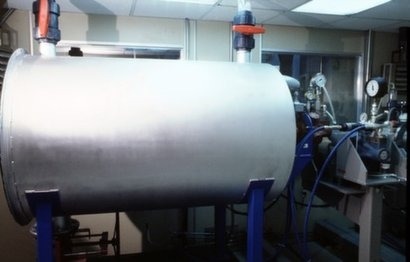
The latest Biomethane Tariff Review published by DECC has been welcomed by the Renewable Energy Association (REA) which commented that the review looks set to deliver a valuable boost to the UK biomethane sector.
The review was launched earlier this year in order to address fears that current tariffs may be over-rewarding large projects. The consultation conducted by DECC received considerable input from across the industry as the original document could have led to more drastic impacts on almost all the biomethane projects in the UK.
“Biomethane is one of the success stories of the Renewable Heat Incentive (RHI) and has a major role to play in greening the gas grid” said REA Chief Executive Dr Nina Skorupska. “From almost nowhere two years ago, we have now 10 projects operational, with more still in the pipeline. The current tariff rates are already competitive with many other technologies and further cost savings are likely as the industry deploys at scale. The industry has worked closely with Government over the last few months to ensure that these proposals drive a long-term sustainable industry, at ever greater value for money for the taxpayer.”
DECC consulted on changes to the biomethane injection to grid tariff early in the summer in order to ensure that the RHI continues to support sustainable growth in the UK’s biomethane to grid market and ensure value for money, without routinely overcompensating installations.
According to the REA, as highlighted in its initial response to the consultation, the quality of the data used by DECC was poor, in particular the assumptions of the gate fees which would have resulted in too low tariffs that would have had a severely disruptive impact on the industry. This would most likely have caused biogas production in the UK to revert to an electricity generation model with potentially little use for waste heat or to abandon development altogether.
The REA, ADBA and members from across the industry subsequently put in a huge amount of work over the summer to try and correct this.
DECC has now taken the industry’s feedback on board and have reviewed the assumptions bringing the new tariffs in line with the feedback. The department has also published its position paper on how tariff guarantees could work.
The new tariff rates are 7.5p per kilowatt hour (kWh) for Tier 1 projects (covering the first 40,000 megawatt hours (MWh) of eligible biomethane; 4.4 p/kWh for Tier 2 (the next 40,000 MWh eligible biomethane) and 3.4 p/kWh for any projects above 80,000 MWh.
This tiering approach is based on the REA’s feedback and is considered to be far more preferable than an approach based on conventional banding by size. The thresholds are based on levels of ‘eligible biomethane’- the amount of kWh which should receive RHI payments – minus deductions for heat used and propane added. The levels are counted annually, based on the anniversary of the project’s start date. At the start of the next year, injection starts back at Tier 1 again.
The timing of the changes adheres to a number of specific time periods, so that prior to 1st January 2015 the rate remains at its current level of 7.5 p/kWh, falling to 6.8 p/kWh over 1st January 2015 to 31st March when the new regulations come into force. From 31st March, the new rates take effect as mentioned above. From 1st April 2015 to 30th June 2015 an RPI inflation adjustment will be made. Any degression of the tariffs can only take place from 1st July 2015 thereby providing a ‘degression holiday’.
The REA has advised that some projects will be worse off if their tariff start date is between 1st January and the date the new regulations come into force. Project developers will therefore need to consider this carefully.
For additional information:

